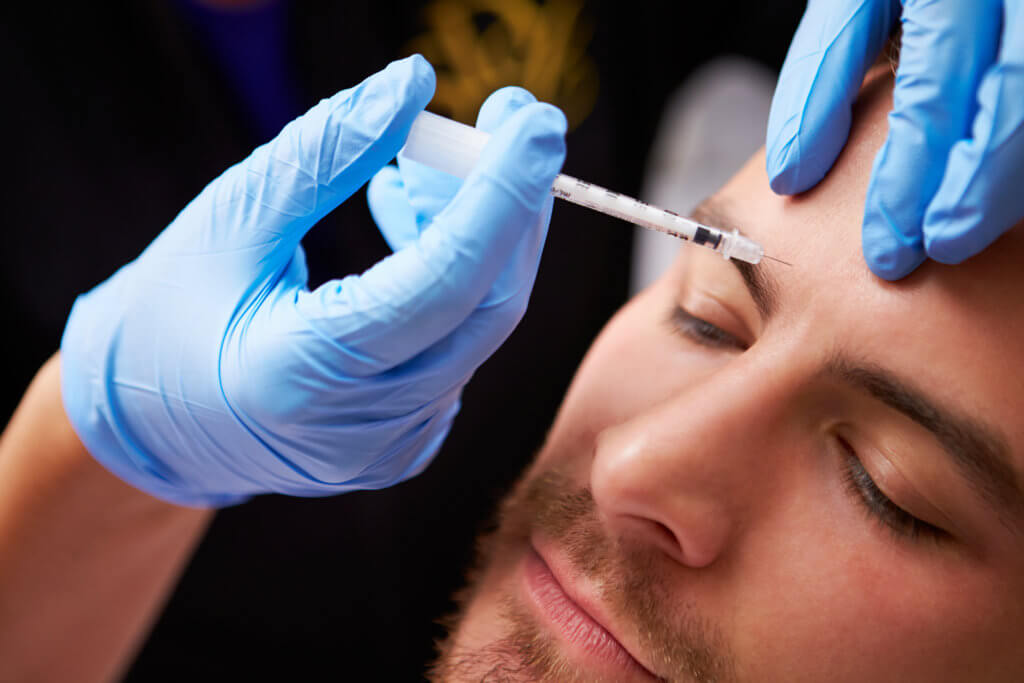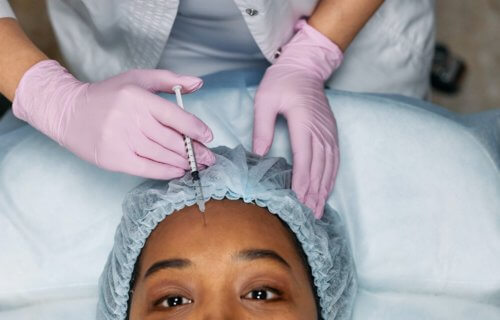LONDON — With any cosmetic procedure, there is a certain amount of risk. However, a new study in the United Kingdom finds patients may need to start worrying about who’s actually giving them an injection. According to a team from University College London, 68 percent of cosmetic practitioners administering injectables like Botox are not qualified medical doctors.
Currently in the U.K., knowledge about the background qualifications, training, and experience levels of those administering these treatments is slim. To address this, a team evaluated 3,000 websites to identify 1,224 independent clinics and 3,667 practitioners administering injections like Botox.
Of the professions represented, 32 percent were doctors, 13 percent were nurses, 24 percent were dentists, and eight percent were dental nurses. Of the doctors, 41 percent were on the specialist register and 19 percent were on the general practitioner register. There are 27 specialties on the specialist register, with plastic surgery being the largest group, followed by dermatology.
“The range of backgrounds opens a broader question relating to competence and consent. One of the key challenges facing the government’s licensing scheme is to ensure that practitioners granted a license possess the skills and experience required to safely administer their treatment to minimize risks to patients,” says Dr. David Zargaran (UCL Plastic Surgery) in a university release.

According to the study authors, the U.K. injectables market is predicted to reach a value of $15.1 billion by 2026, but the market is largely unregulated. The U.K. government is working to update policies regarding injectables, with a public consultation on the industry starting in August 2023. The recommendations are expected to inform Medical Act amendments in 2024.
“There are well-documented, yet to date unaddressed challenges in the UK cosmetic injectables market. Without knowledge of the professional backgrounds of practitioners, we cannot adequately regulate the industry. Our research highlights that the majority of practitioners are not doctors and include other healthcare professionals, as well as non-healthcare professionals such as beauticians,” says Dr. David Zargaran.
This work highlights the need for cracking down on the people providing these injections to ensure they are practicing within their scope, and are held accountable for the cosmetic services they’re providing under their licensure (or lack thereof).
“The UK cosmetic injectables industry has expanded rapidly in recent years. This has happened largely without scrutiny or oversight. Our findings should be a wake-up call for legislators to implement effective regulation and professional standards to safeguard patients from complications. Although the risks associated with injections are often mild and temporary, the physical complications can be permanent and debilitating. There are also serious psychological, emotional, and financial consequences for patients when procedures go wrong,” concludes Professor Julie Davies (UCL School Global Business School for Health).
Who can administer cosmetic injections in the United States?
The rules around who can administer cosmetic injections (like Botox or fillers) in the U.S. vary by state. Generally, these procedures are considered medical treatments, and so they are typically performed by healthcare professionals. The specific types of professionals who can administer these injections often include:
- Physicians: Doctors with a valid license are generally allowed to administer cosmetic injections.
- Registered Nurses (RNs): In many states, RNs can administer these treatments under the supervision of a doctor.
- Nurse Practitioners (NPs): NPs often have the authority to administer these treatments, and in some states, they can do so independently of a doctor.
- Physician Assistants (PAs): PAs can often administer these treatments under the supervision of a doctor.
- Dentists: In some states, dentists are also allowed to administer cosmetic injections.
- Medical Aestheticians: In some states, medical aestheticians can administer these treatments under the supervision of a doctor.
The findings are published in the Journal of Plastic, Reconstructive & Aesthetic Surgery.


Actually, very few injections of any sort are given by an actual doctor. Who draws blood? Who sets IV? Who administers medications? Almost never are these done by the doctor. They’re done by an RN or an LPN.